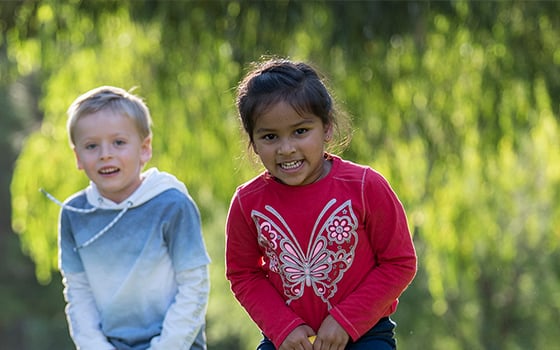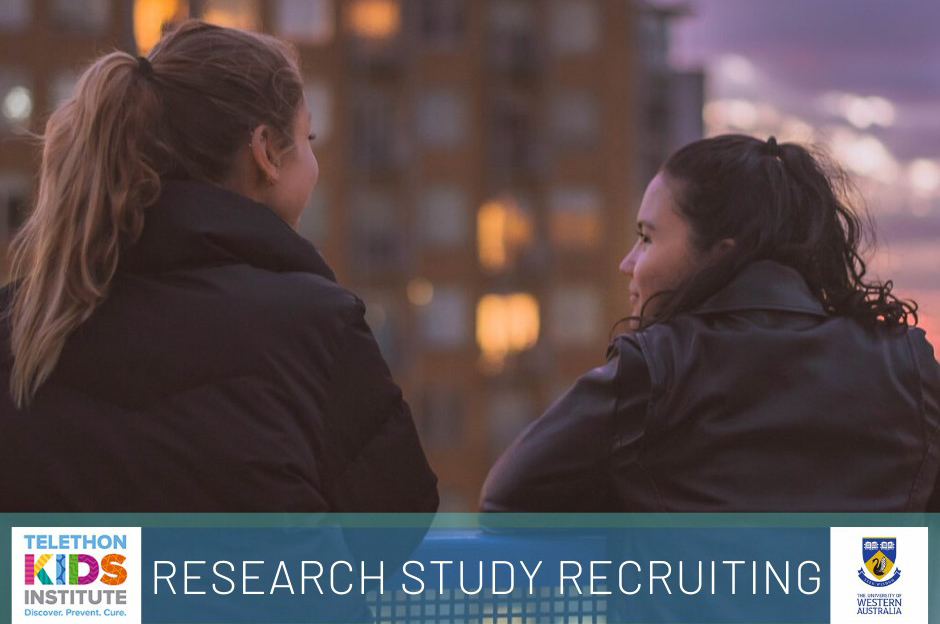Search
Research
Mind The DistanceYael Penelope Keely Bep Amy Helen Perry Strauss Bebbington Uink Finlay-Jones Milroy BPsych (Hons) MPsych (Clin) PhD BA, MPH, PhD MClinPsych/PhD

Read our most recent Annual and Impact reports or browse those from previous years.
The Kids Research Institute Australia's annual report highlights the accomplishments of our researchers, furthering our mission to secure a happier, healthier future for kids everywhere.
View The Kids Research Institute Australia's 2024 impact report
These project websites display extended detailed information about specific research areas.

Join us! Get involved with The Kids through providing a donation, volunteering your time, participating in important research, or with a professional commitment to the institute.
This research project is a collaboration between The Kids Research Institute Australia, Muscular Dystrophy Western Australia, Perth Children’s Hospital and Curtin University.

Are you 14-18 years old and attracted to people the same gender as you? We want you to help us understand how you feel other people see and treat you, and how this affects your mental health.

News & Events
Stan & Jean Perron Awards supporting outstanding child health researchersWe are pleased to announce latest recipients of the Stan and Jean Perron Awards, that recognise the work of exceptional postgraduate students who are undertaking their research projects at The Kids Research Institute Australia.

News & Events
Custom mental health app empowers new mums with lifelong wellbeing skillsORIGINS Co-Director, Dr Jackie Davis, collaborated with researchers at The Kids to develop and pilot the Mums Minds Matter study.
